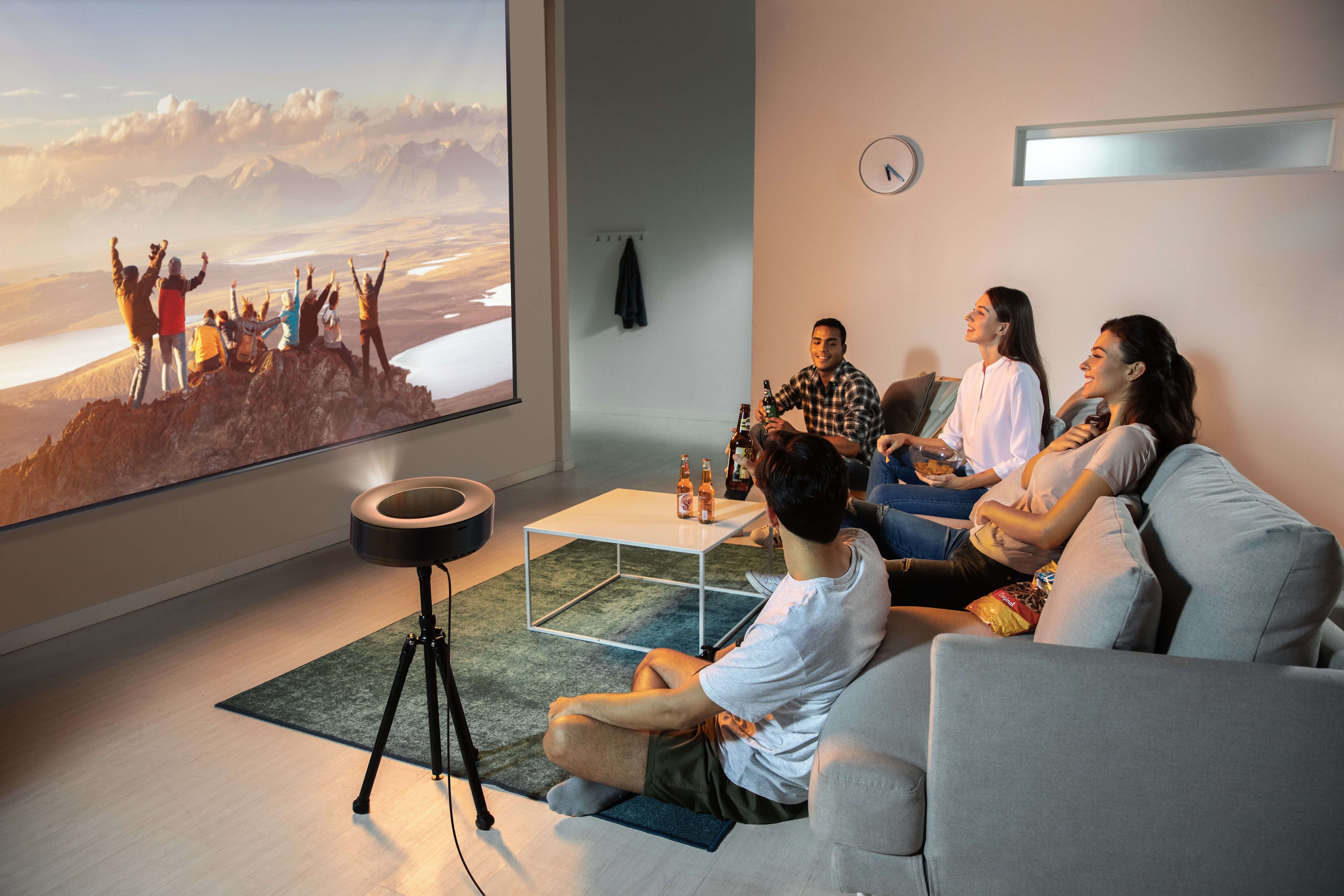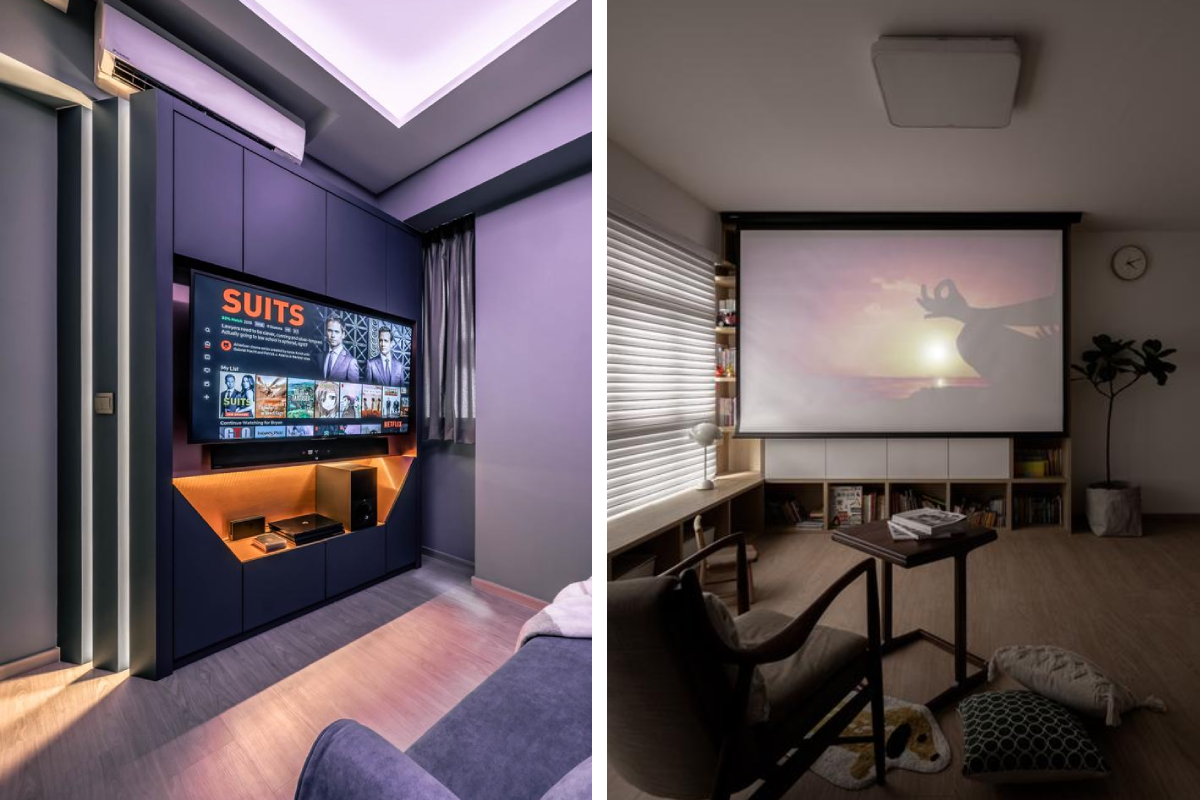Choosing Your Visual Experience: What Is Better - A TV Or Projector?
Introduction
Choosing a device for your visual experience can seem daunting with the plethora of choices at hand. Should you go for a traditional TV or invest in a projector? Each device has its distinct advantages and limitations. This guide will navigate you through the complexities, comparing the attributes of both devices, and helping you make an educated choice. Whether you favour gaming, movie nights, or everyday viewing, discover what works best for you.
Understanding the Television Advantage
Let's delve into the prominent aspects that set television apart as an attractive choice for your visual experience. We'll also address some limitations which you should consider before making a purchase.
The Beneficial Factors of Choosing a Television
Television as a visual medium has multiple benefits, including:
- High-Definition Display: Modern TVs provide crystal clear visuals with excellent color accuracy, delivering a vivid viewing experience.
- Ease of Installation: Unlike other screens, installing a TV box is a straightforward process that requires minimal effort.
- Lower Maintenance: TVs tend to have heightened longevity and rarely demand high maintenance efforts.
- Integrated Entertainment Applications: With built-in apps and streaming platforms, televisions cater to varied entertainment needs.
- Versatility: Televisions are available in different sizes and designs, allowing them to fit seamlessly into various interiors.
The Potential Limitations of Televisions
However, TVs aren’t without certain constraints. Be prepared to tackle these issues:

- Cost: Larger television screens can be costly, which might affect your budget constraints.
- Limited Mobility and Installation Options: The physical size and weight of televisions can limit where they can be installed and their portability.
- Viewing Complications: Glare from ambient room light and restricted viewing angles can sometimes affect the viewing experience.
- Power Consumption: Compared to projectors, televisions are more energy-intensive, which might lead to higher electricity bills.
Comprehending the Projector Advantage
The Benefits: Why Projectors Stand Out?
- Sizeable Cinema-like Experience: Projectors excel for their size flexibility and cinema-like visual output. They can project supersized, sharp images on any blank wall or screen, providing a truly cinematic experience at home.
- Versatility: A projector is not just limited to playing movies or videos; it can convert your space into a gaming arena, or can serve as a presentation aid, thus offering versatile applications.
- Flexible Installation: Projectors are space-friendly and can be installed in a variety of ways - on ceilings, tables, or portable stands, enhancing spatial flexibility.
Facing the Challenges: What Hindrances Come with Projectors?
- Light Sensitivity: The biggest challenge with using a projector is its light sensitivity. Ambient light can wash out the images, making a darkened room essential for optimized viewing.
- Maintenance Needs: Maintenance can be an issue as projector bulbs have a limited lifespan and need periodic replacements. These replacements can add up to your cost over time.
- Audio Component: In most cases, projectors do not come with in-built speakers or sound systems. Therefore, for an immersive audio-visual experience, there is a need for an additional investment in sound equipment.
To sum up, while projectors offer a flexible and immersive cinema-like experience, they do have their share of challenges. It is crucial to consider these points and chalk out your requirements before making a buying decision. Ultimately, if handled and maintained correctly, a projector can greatly enhance your visual delight.
The Debate: Picture Quality in TV vs Projector
Television and projectors, both have come an impressively long way in terms of providing sharp, detailed and vibrant displays. However, they exhibit dissimilar image quality under different conditions. Let's delve into the specifics.
The Great Image Quality Differentiation: TV vs Projector
- Technology Evolution
- TVs: The latest advancements in LED, LCD and OLED technologies have sprung up TVs with ultra-high-definition (UHD) 4k and 8k panels that generate tremendously sharp images.
- Projectors: With major steps taken in DLP, LCD, and LCoS technologies, projectors these days offer 1080p to 4k resolution, producing terrific display formats.
- Light Conditions
- TVs: Equipped with intuitive light sensors, TVs not only perform optimally in bright environments but also automatically adjust to enhance visibility.
- Projectors: They need dimmer settings for the highest-quality display, making them a touch finicky concerning ambient light conditions.
The Dual Impact: Resolution and Screen Size in Viewing
- Resolution
- Higher the resolution, the better the image quality. It provides a finer definition and impeccably sharp visuals.
- Modern TVs come with 4K or 8K resolution panels, making them a clear winner. Projectors lag slightly behind offering high-definition to 4K resolutions.
- Screen Size
- Larger screens engulf the entire viewer's perception, promoting a more immersive and realistic experience.
- Projectors possess an advantageous edge here, presenting larger images that mimic a theater-like environment at home. TVs are usually restricted to a standard size limit.
Hence, when it comes to picking your visual experience based on image quality, resolution, and screen size, determining your individual needs would drive your decision.
Assessing the Best Options for Specific Situations
In the quest to identify whether a TV or projector best suits your needs, considering specific, regular usage scenarios can be beneficial. Key factors include intended usage, such as gaming or movie nights, among others.

Gaming: The Contemplation between TV and Projector
When it comes to gaming, the choice between a TV and projector can be quite intricate. Both devices have different appeals:
• TV for Gaming: TVs offer lower latency rates and limited lag during gaming sessions and tend to have higher refresh rates. Therefore, they are well-suited for competitive games where responsiveness is crucial.
• Projector for Gaming: On the other hand, projectors can provide expansive and immersive visuals, essentially transforming your gaming experience into a larger-than-life affair. This makes projectors extremely appealing for narrative-driven, cinematic games.
In conclusion, depending on the type of games you play, both TVs and projectors can enhance your gaming experience in unique ways.
Movie Nights: Pitting TV against Projector
Evaluating whether to use a TV or projector for movie nights depends primarily on your personal preferences and the setup of your viewing area:
• TV for Movie Nights: TVs offer excellent picture quality and are generally more convenient given they require little setup. They perform well in both bright and dark spaces.
• Projector for Movie Nights: Projectors, however, can create a true at-home theater experience with large-scale imagery. This is particularly the case if you have an adequately dimmable room to optimize image quality.
In summation, while TVs offer hassle-free, high-quality viewing experience, projectors can transport you to a cinema-like environment within the comforts of your home.
Considering the Costs: Investment and Maintenance
Cost Analysis: TVs vs. Projectors
Unpacking the cost differences between a television and a projector requires a comprehensive look into the initial investment, alongside the running and maintenance expenses.
Key Considerations:
- Initial Investment: While top-tier TVs can turn out pricier than moderate projectors, the former also offers higher longevity, cost-effectiveness and minimal upkeep. On the other hand, an entry-level projector can cost less, but the price ascends when you factor in essential accessories like screens and audio systems.
- Running Costs: Televisions generally consume more power than projectors, influencing the running costs in the long-run. Moreover, specific projector models may require costly lamps that significantly add to the running expenses.
Maintenance factors for TVs and Projectors
Maintenance is a cardinal evaluative factor in the TV vs projector battle. It's crucial to recognize the upkeep efforts and costs related to each device.
Essential considerations include:
- Televisions
- *Cleaning*: Due to its surface prone to dust and fingerprints, regular cleaning is the basic maintenance television requires.
- *Component Replacement*: Modern televisions function for years without needing part replacements or any significant repairs under normal usage.
- Projectors
- *Cleaning*: It's recommended to keep projectors dust-free as accumulated particles can lead to overheating. Using a clean, dry cloth for the exterior and a can of compressed air for the vents is beneficial.
- *Lamp Replacement*: One of the primary upkeep factors for projectors includes periodic lamp replacement. These bulbs have a specific lifespan and can be a significant contributor to the overall maintenance cost.
In conclusion, understanding the cost structure--including the purchase price and the maintenance requirements--is elemental in deciding whether a television or projector is financially feasible for you. Each option brings its own expenses and upkeep needs, which must align with your budgetary allowances and expectations for the device.
Conclusion
Deciding between a TV or projector depends largely on personal preference, budget, and specific needs. Whether you opt for TVs for their convenience and crisp visuals or projectors for their cinematic appeal and large visuals, it's essential to consider all factors to derive the best entertainment experience. Remember, the perfect device for you depends on what you value more - your everyday viewing comfort or a larger-than-life display experience.
Related FAQs about what is better a tv or a projector
How does the installation process differ for TVs and projectors?
Televisions often require a simple setup involving unboxing, connecting to a power source, and attaching cables. In contrast, projectors need to be carefully positioned for optimal image projection, which may require ceiling mounts or tables. They also require a clear path between the projector and screen, and additional setup for speakers due to lack of inbuilt sound systems.
Are there any health implications with using TVs vs projectors?
Both devices have minimal health implications when used appropriately. However, watching any screen for extended periods can cause eye strain. Projectors in dark rooms could potentially be less eye-straining than TVs. Always remember to take breaks and use devices in well-lit, comfortable environments.
Can projectors be used for regular, everyday viewing like TVs?
While projectors can technically be used for regular viewing, they are often best suited for specific events like movie nights or presentations due to the need for controlled light conditions. Unlike TVs, they may need more maintenance, and frequent usage could hasten the need for lamp replacement.


